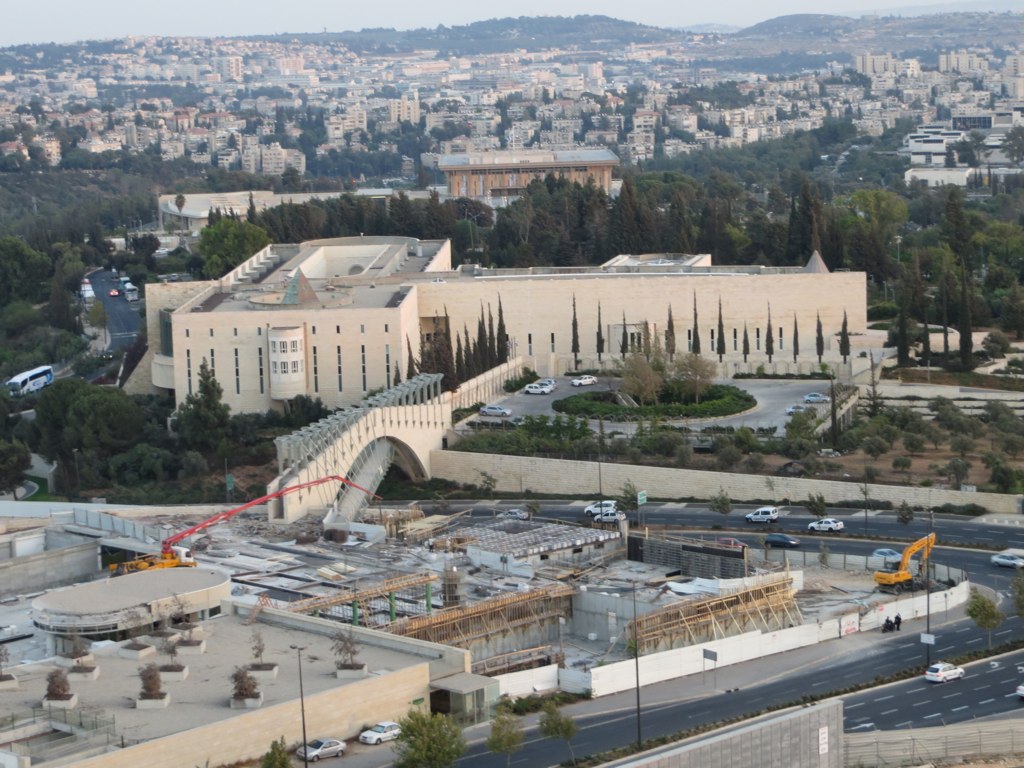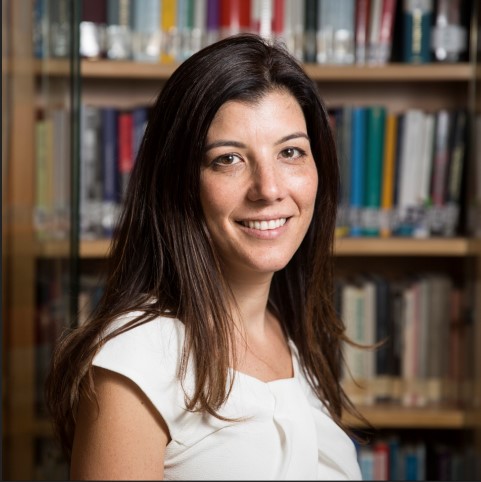Freedom to Grieve: On the Israeli Supreme Court Decision of Combatants for Peace v. Minister of Defense
In the past few years, the Israeli Supreme Court has been a target of political attacks, mostly from conservative circles, which claim that it prefers universal human rights over national values. These groups have made calls to curb the court’s authority and power.

Published by The Lawfare Institute
in Cooperation With

In the past few years, the Israeli Supreme Court has been a target of political attacks, mostly from conservative circles, which claim that it prefers universal human rights over national values. These groups have made calls to curb the court’s authority and power. A controversial decision delivered by the Israeli Supreme Court on May 2 could be an important test case for its ability to withstand political attacks.
The petition was brought by a nongovernmental organization (NGO) called Combatants for Peace and concerned an annual joint Israeli-Palestinian memorial ceremony organized by two Israeli NGOs—Combatants for Peace and the Parents Circle-Families Forum—on the eve of the Israeli Memorial Day. Since 2006, the ceremony has taken place in parallel and as an alternative to the official memorial.
From its inception, the ceremony has provoked fierce controversy within Israeli society. Critics argue that the ceremony fails to distinguish between terrorists and their victims by equally commemorating casualties on both sides to the conflict. Under the guise of a memorial ceremony, claim the opponents, the organizers hold what is actually a political protest. Some critics further say that the ceremony legitimizes terrorism and violence.
The most common criticisms of the ceremony, however, are that it contaminates Memorial Day—an almost holy day in Israel—with politics and is insensitive or even deeply hurtful to the grieving families who oppose it. The more moderate opponents thus argue that the ceremony itself need not be forbidden altogether; rather, it should be held on a different day. The organizers reject this proposal, explaining that the ceremony provides a venue for grieving families who seek an alternative to the official ceremonies that commemorate only Israeli victims and, therefore, that holding it on a different date would defeat its purpose.
Despite public criticism, the ceremony has been held for more than a decade, with the participation of Jewish and Palestinian families. Since the participation of the latter requires the granting of entry permits to Israel, organizers have annually applied to the minister of defense for such permits prior to the ceremony. But in 2017, the already-granted permits were canceled following a terror attack, which took place two weeks before Memorial Day.
In March 2018, the organizers applied for entry permits for 202 Palestinian attendees, and the government coordinator for the territories recommended that the Ministry of  Defense grant the permits. Nevertheless, Minister of Defense Avigdor Liberman denied the request. Shortly thereafter, he announced on Twitter that “I have decided to prohibit the entry into Israel of … Palestinians that were invited to take part in an Arab-Palestinian ‘joint ceremony,’ that will take place on the eve of Memorial Day. I will not lend my hand to desecration of Memorial Day. This is not a ceremony but an exhibition of bad taste and lack of sensitivity that hurt the bereaving families we hold dear.”
Defense grant the permits. Nevertheless, Minister of Defense Avigdor Liberman denied the request. Shortly thereafter, he announced on Twitter that “I have decided to prohibit the entry into Israel of … Palestinians that were invited to take part in an Arab-Palestinian ‘joint ceremony,’ that will take place on the eve of Memorial Day. I will not lend my hand to desecration of Memorial Day. This is not a ceremony but an exhibition of bad taste and lack of sensitivity that hurt the bereaving families we hold dear.”
The NGOs then petitioned the Supreme Court, arguing that the minister of defense exceeded his authority by refusing to grant the permits.
The court accepted the petition, determining that the minister did not take into consideration past practice of granting the permits or the legitimate expectations such precedent generated. In addition, the court determined that Liberman failed to consider the feelings of the grieving families who wished to take part in the ceremony and those members of the Israeli public who supported it. By exclusively considering the feelings of those who objected to the ceremony, and not considering the feelings of those who supported it, the court concluded, the minister’s decision was neither reasonable nor proportional. Stressing the importance of pluralism, the court ordered the minister of defense to allow the entry of 90 Palestinian participants, subject to individual security checks.
Despite the court’s unequivocal ruling, it received a similar petition this year. In May, prior to Memorial Day, the NGOs applied for entry permits for 176 Palestinian participants. They received a single-line rejection letter, stating that “the request is denied due to a closure on Memorial Day.” Once again, the organizers petitioned the High Court of Justice.
The extent of the state’s prerogative to grant entry permits in general, and entry permits to civilians associated with the enemy—namely, Palestinian civilians—has been raised before the Israeli Supreme Court in a variety of contexts. One particularly well-known case—discussed here on Lawfare—is that of cancer patients from Gaza, who petitioned the Supreme Court after the Israeli government refused to allow them to enter Israel for treatment. The court ruled in favor of the petitioners—a decision that some perceived as saving the state from moral disgrace.
Contrary to the Gaza cancer patients case, the legal controversy regarding the joint ceremony revolved not around the rights of those requesting to enter the country but, rather, the rights of those who wished them to be admitted—in this case, the grieving Israeli families. While the state, the respondent in the case, argued in court that the escalating security situation warranted the rejection, the court noted that the rejection decision was made before the escalation, implying that this was a bad-faith argument. The case was thus framed through the lens of freedom of expression, with the entry permits functioning as a means of controlling the petitioners’ freedom of expression.
Once security considerations were taken out of the equation, the key question became how to balance the right to freedom of expression and the public interest in protecting the feelings of grieving families. This balance was complicated by the question of which grieving families’ feelings were to be taken into consideration; that is, some bereaved families supported the ceremony while others strongly opposed it.
All three judges preferred freedom of expression. Justice Yitzhak Amit noted that families were free to grieve on their own. He explained that there are “ninety-nine ways for commemoration, ninety-nine ways for expressing bereavement. This is where lies the core of freedom of expression … the minister of security should not interfere with the manner in which each family chooses to express its pain.” Justice Daphne Barak-Erez added to the 2018 decision by stating that the issue belongs to the core of freedom of expression and that the participation of Palestinians in the ceremony was part of its intended message. Justice Anat Baron—herself a bereaved mother, having lost a son in a terror attack on a Tel Aviv pub in 2003—added that the ceremony bears a message of peace and reconciliation, and that the strength of Israeli society lies in its ability to contain various voices.
Two points need to be stressed with respect to the 2018 and 2019 decisions when read together. First, it remains unclear to what extent the minister of defense can consider harm to public feelings when reviewing entry permits. The protection of public feelings was discussed as a legitimate consideration in the 2018 decision and was not explicitly rejected by the judges in the 2019 decision. Indeed, in the 2019 decision Justice Amit indicated that the minister’s primary authority was to ensure the security of the people of Israel and that he failed to see how the ceremony posed a security risk. Despite that, both decisions focused on the balance between freedom of expression and the offense to public feelings, and both decisions assumed that the protection of public feelings was within the minister’s authority.
Israeli Prime Minister Benjamin Netanyahu disagreed with the decision, stating that “there is no room for a memorial ceremony which compares the blood of our children to the blood of terrorists[,]” adding, “which is why I refused to allow the entry of the ceremony’s participants.”
Second, the significance of the decisions is heightened by the political context in which they were given. As indicated above, the Israeli Supreme Court is currently under ongoing fierce political attacks and there are concrete proposals by influential politicians to limit its authority to substantively review administrative decisions and policy. The outcome of Combatants for Peace v. Minister of Defense is an indication of the court’s willingness both to grant an unpopular decision in an extremely sensitive matter and to protect the freedom of expression of a political minority. In the context of the political attacks on the court, this appears to be an encouraging sign regarding the court’s ability to withstand political pressure.






